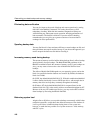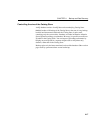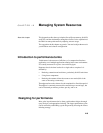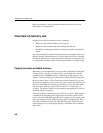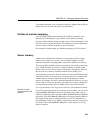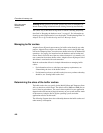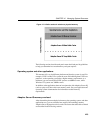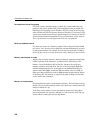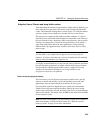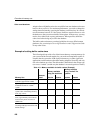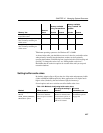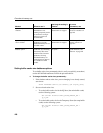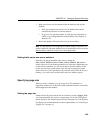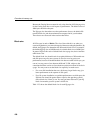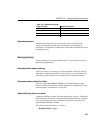
Overview of memory use
424
Raw partitions versus file systems
For UNIX systems, databases using “cooked” file systems rather than raw
partitions may require another 30% of the remaining memory to handle file
buffering by the operating system. Windows NT file systems do not have the
same overhead as UNIX file systems. However, Windows NT and some UNIX
systems may benefit from reserving a significant portion of memory for the file
system to better handle I/O operations. For more information, see the Adaptive
Server IQ Installation and Configuration Guide for your platform.
Multi-user database access
For multi-user queries of a database, Adaptive Server IQ needs about 10MB
per “active” user. An active user is defined as one that simultaneously accesses
or queries the database. For example, 30 users may be connected to Adaptive
Server IQ, but only 10 or so may be actively using a database at any one time.
Memory requirements for loads
Adaptive Server IQ also requires a portion of memory separate from the buffer
caches to perform loads operations, synchronization, and deletions. This
memory is used for buffering I/O for flat files. Adaptive Server IQ uses
memory to buffer a read from disk. The size of this read equals the
BLOCK
FACTOR
multiplied by the size of the input record. BLOCK FACTOR is an
option of the
LOAD TABLE command. With the default value of 10,000, an
input row of data of 200 bytes results in 2MB total that Adaptive Server IQ uses
for buffering I/O. This memory is required only when loading from flat files,
not for inserts from a database.
Memory for thread stacks
Processing threads require a small amount of memory. The more IQ processing
threads you use, the more memory needed. The
-iqmt server switch controls the
number of threads for IQ.
If you have a large number of users, the memory needed for Catalog Store
processing threads also increases, although it is still relatively small. The
-gn
switch controls Catalog Store processing threads.



